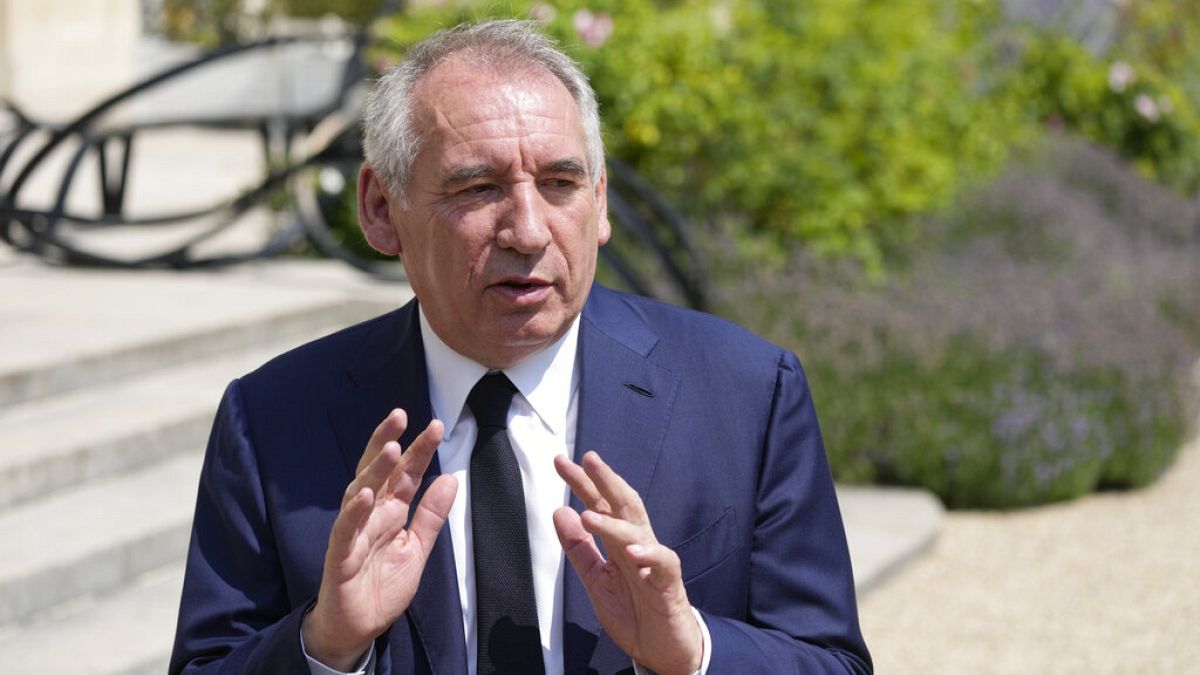Who is François Bayrou, France’s new prime minister?

After days of deliberation, French President Emmanuel Macron turned to a longtime centrist ally in the hope he could unite the country’s divided parliament.
Emmanuel Macron named centrist François Bayrou as France’s new prime minister on Friday, ending days of political gridlock after a historic no-confidence vote ousted the previous government last week.
Bayrou, who is 73, has been a well-known figure in French politics for decades. The founder and leader of the centrist Democratic Movement, known as MoDem, he is best-known to the French public for his tenure as education minister from 1993 to 1997 in a conservative government.
Bayrou was a candidate himself for president three times, in 2002, 2007 and 2012. His best result was in 2007, where he came third with almost 19% of the vote.
In 2017, he became one of Macron’s top public backers, putting aside a presidential bid of his own to throw his weight behind the younger candidate.
At the time, he was briefly appointed justice minister, but quickly resigned from the government over an investigation into MoDem’s alleged embezzlement of European Parliament funds.
He was eventually cleared in the case this year by a Paris court, which found eight other party officials guilty and issued the party with a fine.
Political allegiances
Bayrou’s ability to build bridges will likely be crucial in days to come, as French parliament has been divided in three main blocs since Macron called snap elections in June.
An alliance of left-wing parties, primarily formed to keep out the far-right, took home the largest number of votes but still fell short of a majority. Macron’s centrist alliance and the far-right National Rally (RN) make up the other two blocs.
Macron is likely hoping that Bayrou’s political experience and relatively good relations with different factions will help bring France out of its current political chaos.
The new prime minister faces the daunting task of appointing a government to work with parliament to pass a budget agreement for the upcoming year, after the previous government’s proposal fell apart.
The budget is a major point of contention for France’s political parties, with the president of RN Jordan Bardella, saying that his party had “red lines” on a potential deal and that a new prime minister must be prepared to take every group’s opinion into account.
“The ball is in François Bayrou’s court,” Bardella said, adding that his party was taking a wait-and-see approach for now.
On the left, various politicians are arguing that Bayrou has been too closely aligned with Macron, and that continuing Macron’s policies doesn’t respect the results of the summer’s election, in which the left won the most votes of any of the bloc.
Manon Aubry of the leftist party La France Insoumise said on Europe1 radio that Bayrou was the “very embodiment of Macronism”.
Mathilde Panot, head of the hard-left France Unbowed group at the National Assembly, posted on X that Bayrou’s appointment amounts to “the continuity of (Macron’s) bad policies”.
She added her party is ready to vote for another no-confidence motion against the new government.









